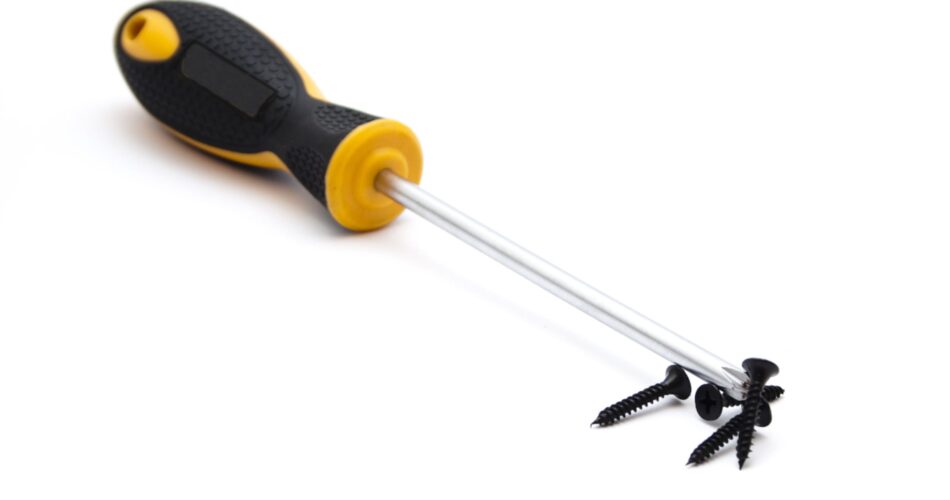
A magnetic screwdriver can’t damage any modern computer components since its magnetic field is far too weak to affect hardware computers use these days. Just don’t bring it near a floppy disk!
You may have heard that magnets are bad for computers, and so that must mean that using a magnetic screwdriver in your PC is also bad, right? While you can damage your computer with one, it’s not because of magnetism.
Doesn’t Magnetism Damage Computers?
People are often concerned about magnetism with regard to their computers because they’re afraid that the magnetic field could interfere with the sensitive electronic components inside the computer. So is that a real concern?
In the past, some electronic components were susceptible to damage from strong magnetic fields, but modern computer components are typically designed to be immune to the effects of magnetism. At least, they’re immune to the types of magnetic fields you’re likely to encounter in normal daily life. Don’t try to check Twitter on your laptop inside an MRI machine or anything like that.
The days of your mom sticking your computer science homework floppy disc to the fridge with a magnet are long behind us. It takes a very strong magnetic field to affect a storage device like a mechanical hard drive, and SSDs operate on entirely different principles. A strong magnetic field can induce an electric current inside a device like an SSD, but it would have to be exceptionally strong to have some sort of negative effect.
Can I Use a Magnetic Screwdriver in My PC?
Using a magnetic screwdriver when working on a computer is generally safe. The magnetic field from the screwdriver is not strong enough to damage the sensitive electronic components inside the computer.
However, it is important to use the appropriate screwdriver for the type of screws used in your computer and to be careful not to drop any screws or other small parts inside the computer. This can cause damage to the computer and should be avoided.
Any Screwdriver Can Cause Damage
While a screwdriver itself is not likely to damage the internal components of a PC, using the wrong type of screwdriver or using excessive force when removing or installing screws can cause damage. For example, using a screwdriver that is too small or too large for the screws in your computer can strip the screw threads, making it difficult or impossible to remove the screw.
Using excessive force when removing screws can also cause damage to the components they are attached to, such as the motherboard or other delicate parts. Additionally, if you accidentally drop a screw or other small part inside the computer, it can cause damage if it comes into contact with fragile electronic components.
If your screwdriver slips, you can stab and damage any number of components. And, of course, if your computer is actually on while you’re rummaging around inside it, a screwdriver can cause a short circuit. That’s why your computer should always be off before you work on its internals!
The Benefits Outweigh the Risk
There are several benefits to using a magnetic screwdriver when working on a computer or laptop. A magnetic screwdriver can help to hold screws in place while you are removing or installing them, making it easier to work on the computer and reducing the risk of dropping screws or other small parts inside the computer. Consider picking one up if you don’t have one already before your next PC cleaning or upgrade.
iFixit Mako Driver Kit
The iFixit Mako kit is probably the last kit screwdriver kit any electronics or computer geek needs to buy. Even the case is magnetized, so you can sort and store screws instead of having them disappear into another dimension.
Source link




